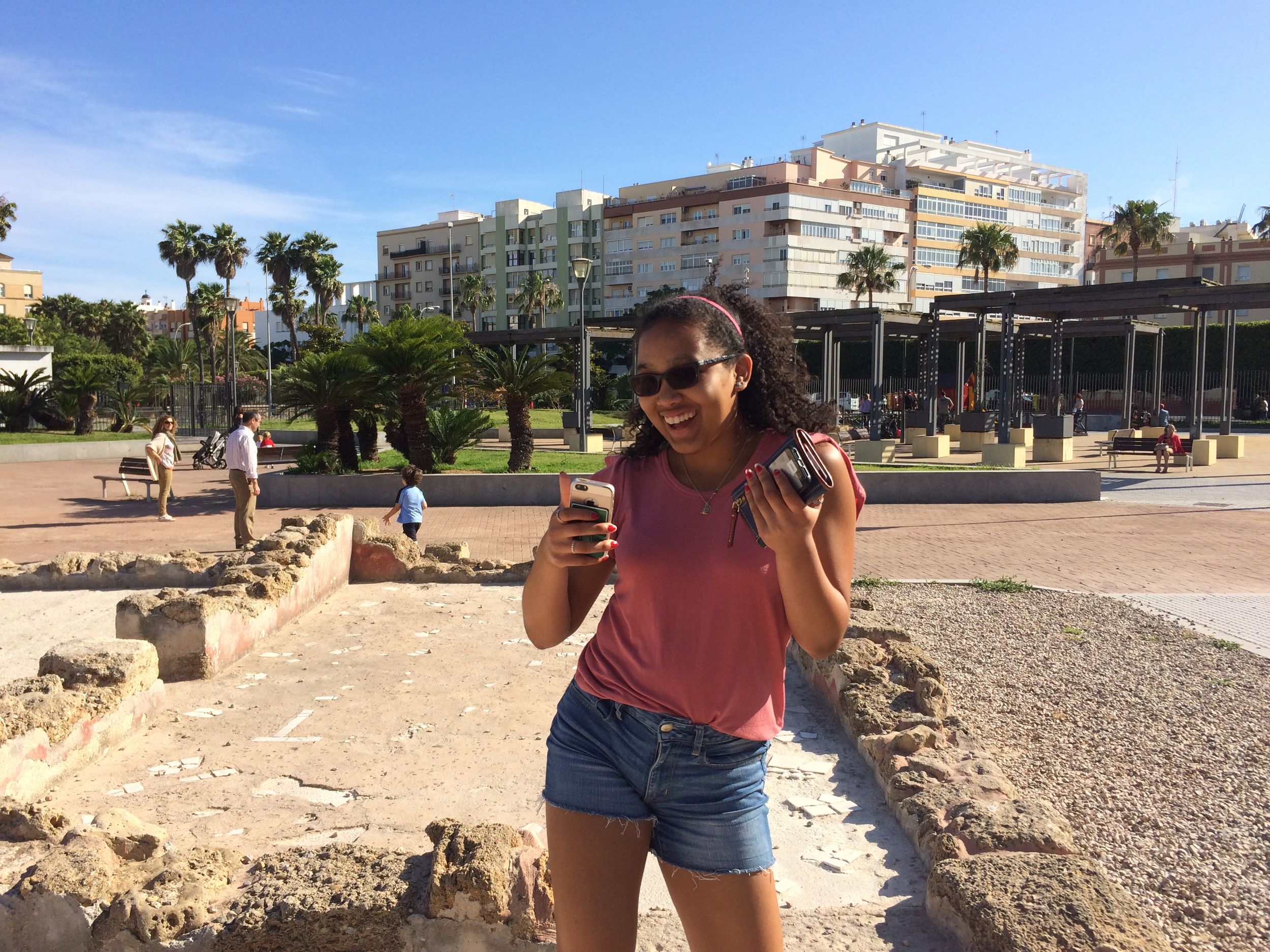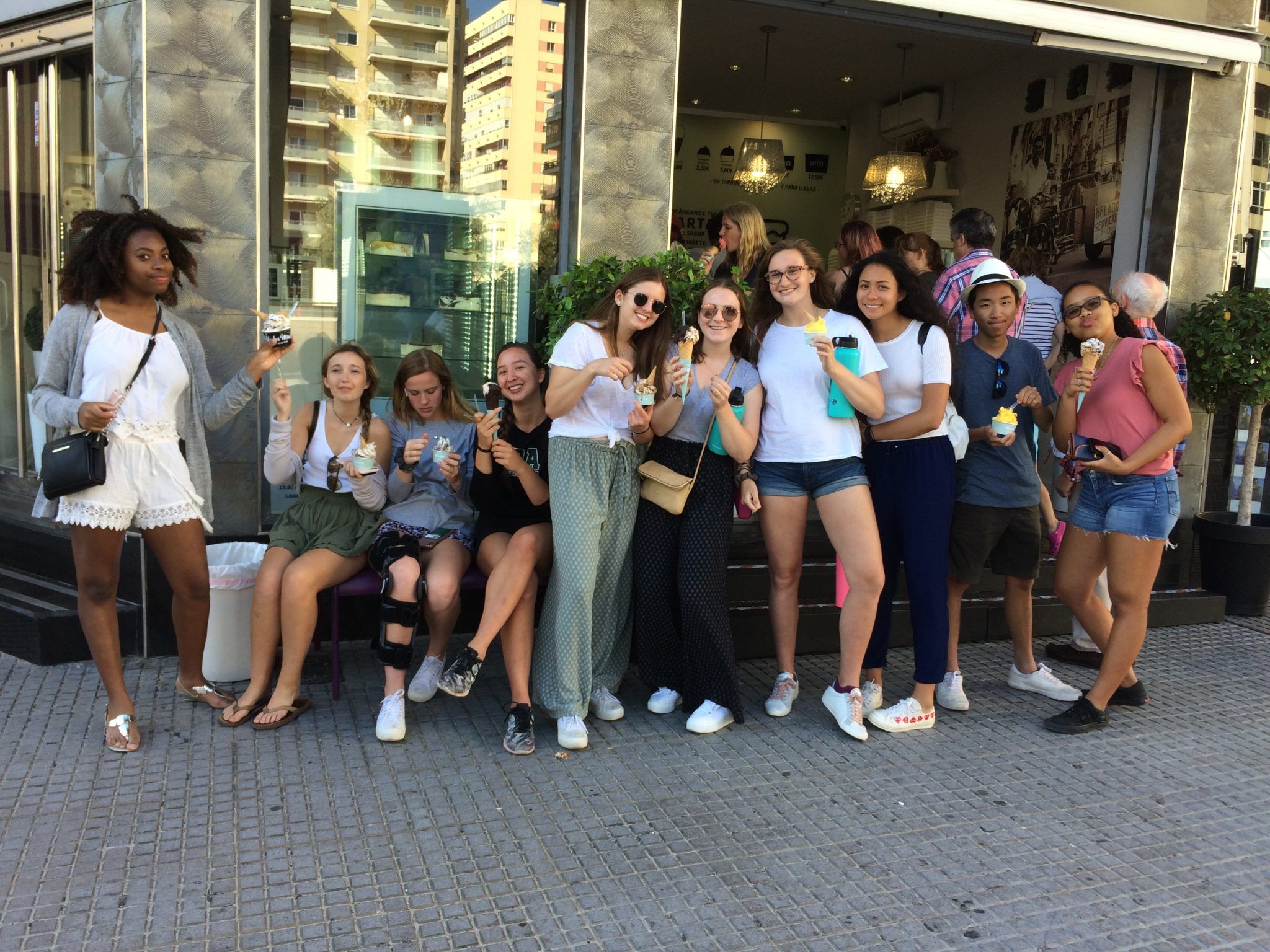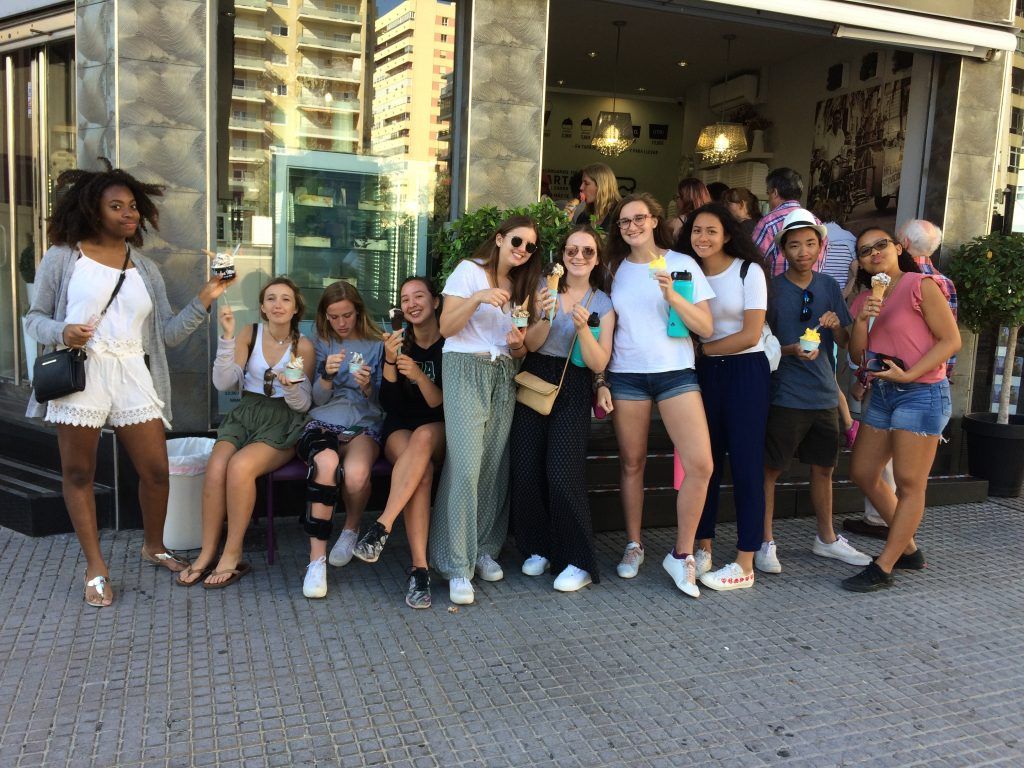Emma Weech ’21 considers the many factors that have helped her improve her Spanish throughout her time in Cádiz.
Whenever I had to remember a previously learned skill from depths of my memory, my parents would call upon the popular expression “just like riding a bike”. The phrase represents the ease in which one could recall a skill and without worrying about forgetting it. My parents used this convenient saying as encouragement for as long as I can remember – much earlier than when I learned at 10 years old.
Until last week, I had not ridden a bike since that fateful winter of 2013, and I quickly discovered that I couldn’t remember this skill as easily as I could the phrase my parents had repeated so often. When it came time to ride the bicycle, I was ready to throw away the remnants of my near-empty self-confidence. I strapped on a helmet and, after a quick mental pep talk, began to peddle. As one would expect from reading this, I did survive the experience. I’m sure that I appeared – to the average pedestrian – as though I had no idea what I was doing. This observation would be very accurate. As I uneasily swerved through the cobbled stone streets, I could feel my confidence grow little-by-little. Yes, it was terrifying riding near main roads with my questionable technique, but I’d like to think that I improved as the ride went along. Although I never reached the level of a Tour de France cyclist, I am proud to say that I did not once face plant in front of any of the quaint gelato shops of Cádiz.
Much like this activity, many of my experiences in Spain were “like riding a bike”. I’ve been learning Spanish in school for years, and I have the basic tools to communicate with others and engage in thoughtful conversations. Despite this, upon landing in a foreign country whose primary language isn’t English, I was unable to prevent the nerves that come along with social interaction. After spending time at a camp and using Spanglish (a mixture of mostly English with some Spanish here and there), I had to accept that this wouldn’t be sufficient to get the most out of my home stay and classes. At Deerfield, I had become so comfortable in knowing those around me that I had forgotten how the difficulty of socializing with strangers, much less in a different language. I had to relearn those skills and utilize what I’d learned in the classroom in order to form meaningful relationships.
My few weeks with my host parents Mari Carmen and Juan (Mamá and Papá) consisted of, at first, standard questions such as “How was your day?”, but soon progressed to deeper ones about family and values. Similarly to riding the bike through the streets of the old city, I had to find balance in admitting my mistakes and conceding that I needed help formulating sentences. My housemate Ellie and I formed an interdependent relationship of feeding each other vocabulary or hints about grammar when we sensed the other was stuck. I will never forget how my Mamá and Papá titled their heads when I couldn’t quite express my thoughts, or how they gently taught me a more thoughtful way of stating my views.
Mamá and Papá were always patient and encouraging when I struggled to speak with coherence, and it was this patience and kindness that gave me the courage to speak more and improve. This support, along with the daily lessons and educational excursions, allowed me to develop as a speaker and grow more assured in my own abilities. In my opinion, it takes a certain confidence to admit fault and ask for help rather than to shun assistance and seek perfection on your own. As I prepare to leave a city that I have called home for the majority of June, I am incredibly thankful for the teachers, friends, and guides who have made this trip so memorable.
Although I am fully aware that I still have a long way to go before becoming fluent in Spanish, I plan to continuously practice my skills (and not wait 6 years to deal with the consequences).



